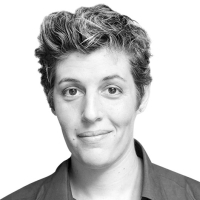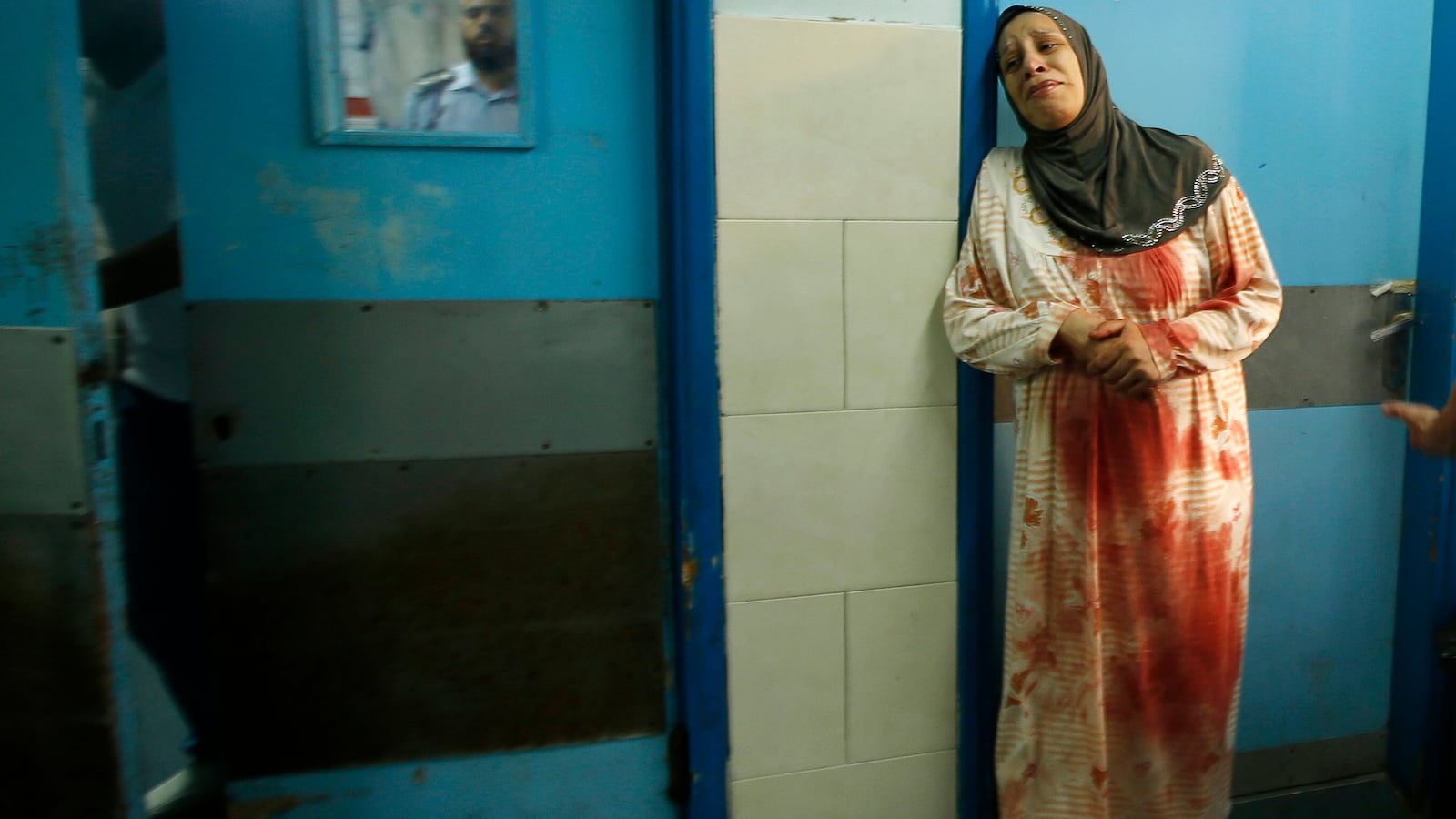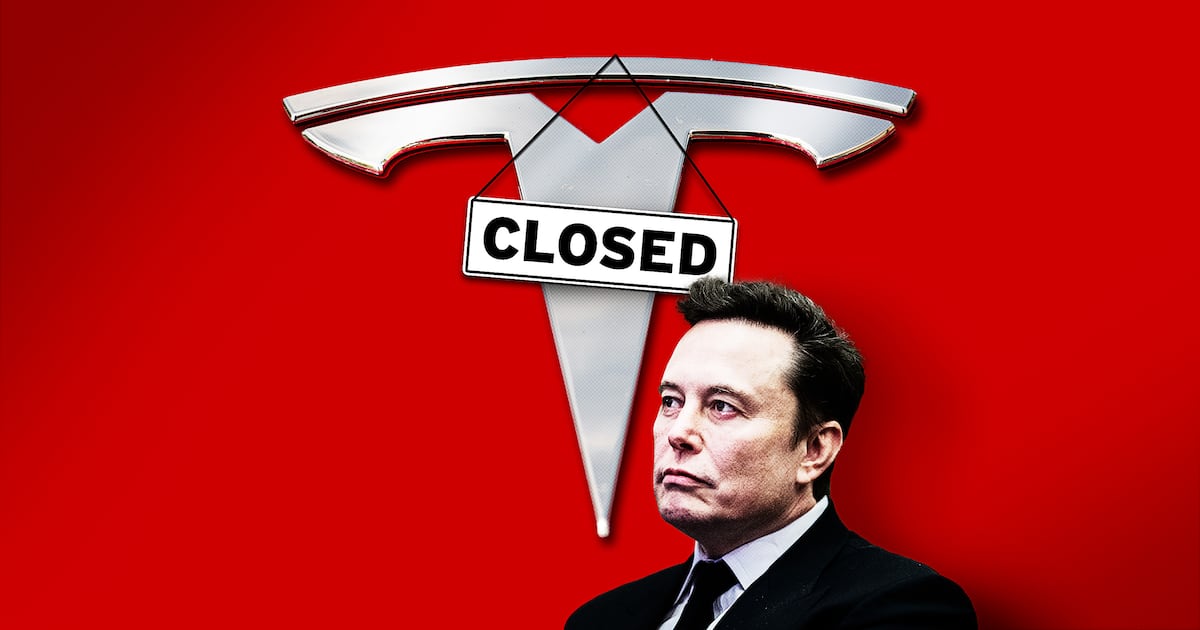What kind of Jew would I be if I were not horrified by the incredible death and destruction being wrought on the Palestinian people? Faith and history command us to abhor all violence. The question is not why am I against Israel’s disproportionate violence. The question is: How can any faithful Jew defend it?
I hate violence in general. I hate Hamas rockets being fired toward Israel as much as I hate Israeli missiles being fired at Gaza. I don’t think I should have to state that but apparently I do, since every time I critique Israel’s military actions, I’m accused of supporting Hamas. I hate Hamas. Hamas is a vile organization that manipulates and harms the Palestinian people instead of helping them. But I can be against Hamas and support the state of Israel while simultaneously critiquing Israel’s attacks on civilians in Gaza.
I admit that I’m about as much of a theologian as I am an Orthodox Jew, which is to say not much of either. I could cite quotes from the Torah to point to the inherent peaceful, anti-violent nature of Judaism—say, the Jewish tenets of war, which put the highest value on peace and protecting the innocent. But Judaism has always been to me what Israel is as well, an idea not merely inscribed books or carved out of geography but embodied in the values of its believers—and thus only as good or bad as the lives we breathe into it. I was raised in a fairly anti-religion family so the extent to which I embrace or distance myself from my faith isn’t an act of reflex but choice. I choose Judaism to the extent I feel it is a force for good and justice in the world.
Which, historically, it has been. Jews have often stood on the righteous side of history—against genocide and for human rights and civil rights and equality for all. In the United States alone there is a long and proud tradition of Jewish activists standing up for peace and justice. That tradition here and elsewhere stands in contrast to and defiance of the ugly past, when our ancestors were subject to the consequences of unthinkable hatred and discrimination. Out of the ashes of the Holocaust, I always thought of us Jews not only as a reminder for how horrid inhumanity could be, but also as a beacon for precisely the opposite—not only a warning to the world but, just as much, an example.
Maybe that’s not what Judaism means to everyone. That’s what it means to me.
Which is precisely why it’s so troubling that a nation founded as a haven for the people of my faith is killing so many Palestinians. According to the latest United Nations figures, at least 121 Palestinian children under the age of 18 have been killed since July 8—roughly one-third of all Palestinian civilian casualties. Last week, four Palestinian children were killed by Israeli missiles while they were playing on a beach. This week, 25 people—including 19 children—were killed by Israeli missiles as they were sitting down to dinner to break the Ramadan fast. Yes, Hamas is firing rockets from residential areas and storing weapons caches in schools. But it’s also true that Israel bombed the only recovery hospital in Gaza. One side’s wrongs don’t make the other side’s actions any more right. How could any parent, any human being, let alone any Jew, hear story after story of death and destruction in Gaza and not be wrenched with sadness?
For nearly 50 years now, or almost three-quarters of its own existence as a state, Israelis have occupied Palestinian territories in the name of forming a Jewish state. That makes Israel one of the longest-standing colonial powers in modern history. And in recent years the occupation of Gaza in particular has been increasingly harsh, shutting off the region from important resources and economic opportunity. In this context, while I embrace the idea of Israel, I’m deeply conflicted when the actualization of the idea of Jewish liberation seems to go hand-in-hand with the oppression of others. And yes, whatever you think about the motivations or justifications of the state of Israel and its actions, the Palestinian people are undeniably politically, economically, and culturally oppressed.
It was Rabbi Hillel, considered one of the most important leaders in Jewish history, who said, “Do not do to others what you would not have them do to you.” He added, “This is the whole of the Torah, and the rest is commentary; go learn it.” Hillel’s key lesson, what we today call The Golden Rule, was inscribed on a portrait that hung in my living room as a child. In the picture was a rabbi and, painted standing beside him, people from all over the world. When I think of Judaism, I think of that picture—which reminds me to treat my fellow human beings with compassion no matter what.
Ultimately in this conflict, history will reward not the side that struck the first blow but the side that first stopped striking. In the meantime, at the very, very least, the blows could be less severe. And those severe blows are mostly being lobbed by the far more powerful and capable Israeli military.
If faith is the belief in a power greater than ourselves as human beings, then my faith derives from a belief that there is a power to be kind and understanding and generous and, yes, to love thy neighbor—a faith that the Holocaust will never happen again and nor will anything echoing such dehumanization and destruction. Believing that peace is both good and possible, believing that our respect for humanity can triumph over our urge toward violence, does not mean I’m a terrorist sympathizer or naïve or anything in between. As far as I’m concerned, it just means I’m Jewish.





